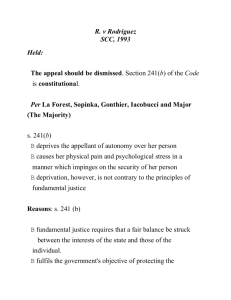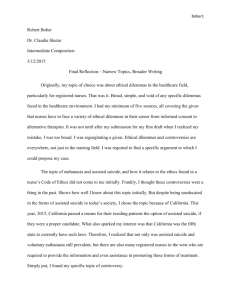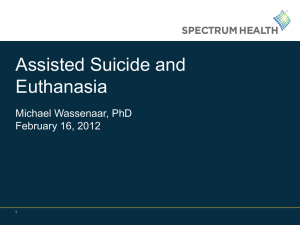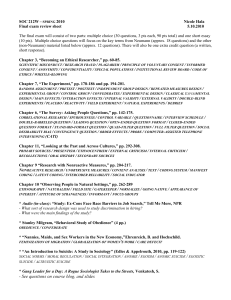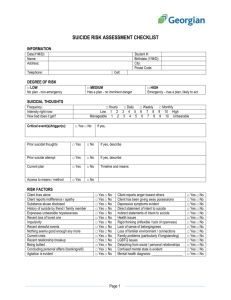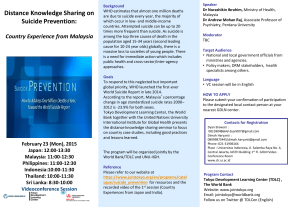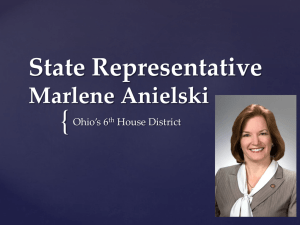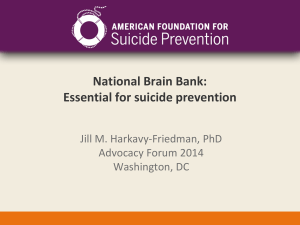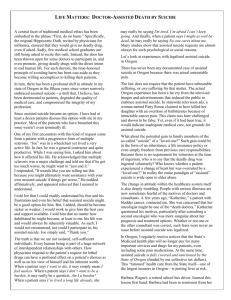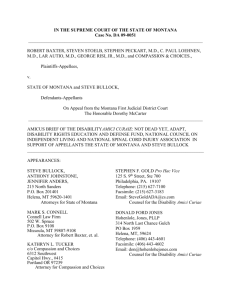talkingpointsadaflyer
advertisement
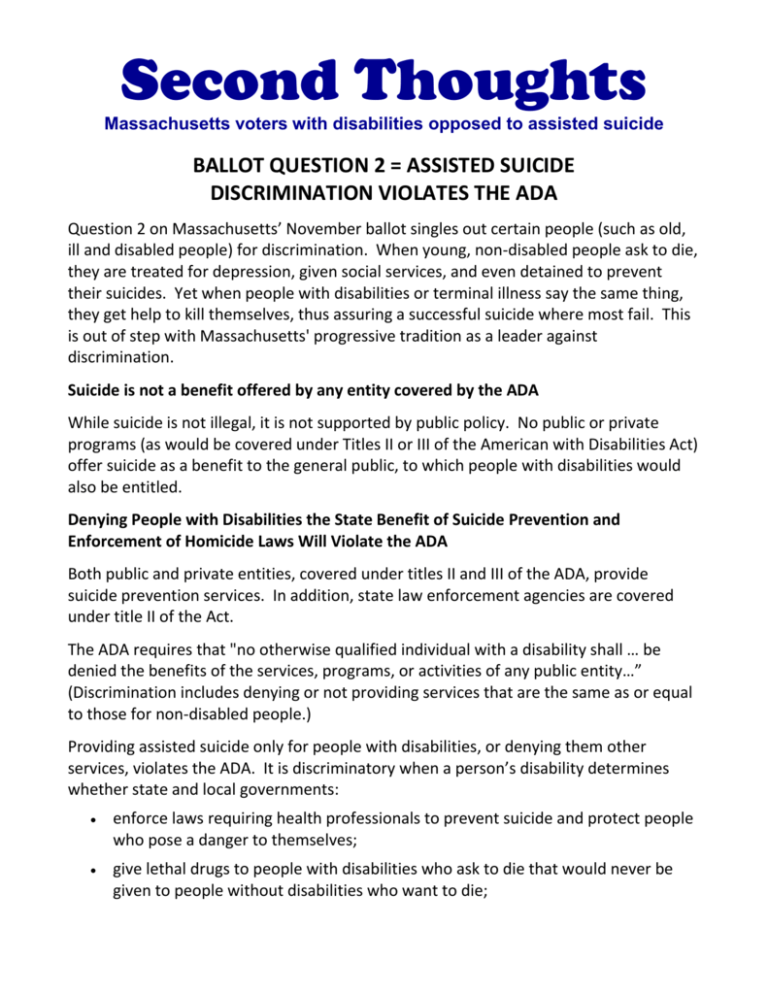
Second Thoughts Massachusetts voters with disabilities opposed to assisted suicide BALLOT QUESTION 2 = ASSISTED SUICIDE DISCRIMINATION VIOLATES THE ADA Question 2 on Massachusetts’ November ballot singles out certain people (such as old, ill and disabled people) for discrimination. When young, non-disabled people ask to die, they are treated for depression, given social services, and even detained to prevent their suicides. Yet when people with disabilities or terminal illness say the same thing, they get help to kill themselves, thus assuring a successful suicide where most fail. This is out of step with Massachusetts' progressive tradition as a leader against discrimination. Suicide is not a benefit offered by any entity covered by the ADA While suicide is not illegal, it is not supported by public policy. No public or private programs (as would be covered under Titles II or III of the American with Disabilities Act) offer suicide as a benefit to the general public, to which people with disabilities would also be entitled. Denying People with Disabilities the State Benefit of Suicide Prevention and Enforcement of Homicide Laws Will Violate the ADA Both public and private entities, covered under titles II and III of the ADA, provide suicide prevention services. In addition, state law enforcement agencies are covered under title II of the Act. The ADA requires that "no otherwise qualified individual with a disability shall … be denied the benefits of the services, programs, or activities of any public entity…” (Discrimination includes denying or not providing services that are the same as or equal to those for non-disabled people.) Providing assisted suicide only for people with disabilities, or denying them other services, violates the ADA. It is discriminatory when a person’s disability determines whether state and local governments: enforce laws requiring health professionals to prevent suicide and protect people who pose a danger to themselves; give lethal drugs to people with disabilities who ask to die that would never be given to people without disabilities who want to die; investigate and enforce laws against abuse, neglect and homicide in cases reported as assisted suicides. Where assisted suicide is legal, a doctor who decides someone is eligible is given legal immunity. All normal suicide-related procedures – such as an autopsy and police inquiry – are set aside. A person’s disability should never be the basis for these distinctions. Deadly Mix: Assisted suicide is a deadly mix with a profit-driven healthcare system. Health maintenance organizations (HMOs) have an incentive to save money by denying treatment, even when it hastens patients’ deaths. This danger would be greater if assisted suicide were legal. Assisted suicide is usually cheaper than treating people’s medical conditions. Self-determination: Assisted suicide is unnecessary because current law gives every person the right to refuse lifesaving treatment, and to have adequate pain relief, including palliative sedation. Assisted suicide decreases self-determination by giving doctors, family and insurers the power to decide whether you will live or die. Abuse: The proposed law is a recipe for elder abuse. 1 in 10 Massachusetts elders are abused, an increase of 31% in the last three years. People with disabilities are twice as likely to be abused as their non-disabled peers. An heir can help sign someone up and certify their eligibility, be a witness, and pick up the prescription. Once the drug is in the home, no one knows who takes it, or how its administered. If the person struggled, who would know? Safeguards: A lack of safeguards and oversight in the proposed law puts people at risk of misdiagnosis, deprivation of treatment and economic pressure to choose suicide, while protecting doctors from liability. If a doctor refuses to write the lethal prescription, the patient or family simply can— and do—find another doctor (“doctor shopping”). “The terminal diagnosis may be incorrect or premature. Also, the definition of “terminal illness” does not consider the effect of treatment. So a person with a treatable condition like diabetes could be eligible for assisted suicide. The law does not include enforcement provisions, investigation authority, oversight or data verification. The only foolproof safeguard is for the prescribing doctors. The law holds doctors to only a “good faith” standard, which makes any safeguards unenforceable. For more information, visit Second Thoughts at www.second-thoughts.org VOTE NO ON QUESTION 2 For more information, visit Second Thoughts at www.second-thoughts.org
